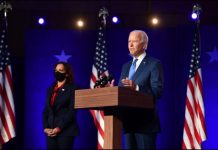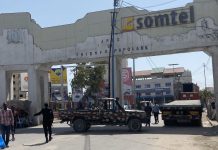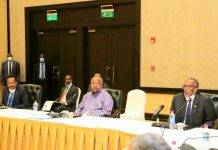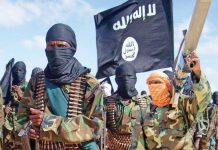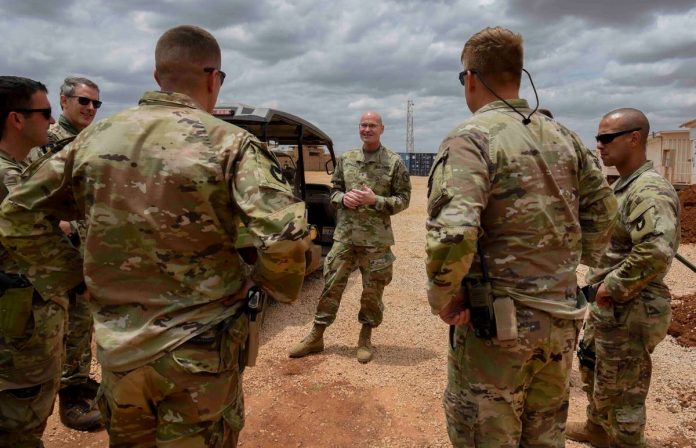
WASHINGTON — President Trump, pressing his end-of-term troop withdrawals from conflicts around the world, will pull American forces out of Somalia, where they have been trying to push back advances by Islamist insurgents in the Horn of Africa.
The Pentagon announced on Friday that virtually all of the approximately 700 troops in Somalia — most Special Operations forces who have been conducting training and counterterrorism missions — will be leaving by Jan. 15, five days before President-elect Joseph R. Biden Jr. is scheduled to be inaugurated.
The withdrawal from Somalia followed Mr. Trump’s orders to reduce the American presence in Afghanistan and Iraq, and reflected the president’s longstanding desire to end long-running military engagements against Islamist insurgencies in failed and fragile countries in Africa and the Middle East, a grinding mission that has spread since the Sept. 11, 2001, attacks.
The debate over the value of counterterrorism and training missions like the one in Somalia, the site of the bloody “Black Hawk Down” debacle in 1993, is growing — among the public, in Congress and even in the Pentagon. Among the points of contention is whether the United States should expend life and treasure for shadowy security operations in remote parts of the world.
But Mr. Trump’s push to leave Somalia before he leaves office comes at a delicate time for the East African nation: It is preparing for parliamentary elections next month and a presidential election scheduled for early February. The removal of American troops could complicate any ability to keep election rallies and voting safe from Shabab bombers. It also comes at a time of political turmoil in neighboring Ethiopia, whose army has also battled the Shabab.
Supporters of the mission say it is important for the United States to continue strikes on militants and to help train government forces to prevent their territory from becoming a haven for planning terrorist strikes, much like how Al Qaeda plotted the Sept. 11, 2001, attacks from a home base in Afghanistan. Even some of Mr. Trump’s staunchest Republican allies in Congress have warned against troop cuts in Somalia.
“This strategy has worked, and our continued presence there has prevented Al Shabab from expanding its foothold in the region,” Senator James M. Inhofe, Republican of Oklahoma and the chairman of the Armed Services Committee, said in a statement this fall when hints of Mr. Trump’s likely actions surfaced.
Many of the American troops will be “repositioned” to nearby Kenya, a Defense Department official said Friday. That means airstrikes by drones on militants in Somalia could continue, but efforts to effectively train local security forces on the ground would end.
It was not immediately clear whether other parts of the American presence in Somalia — such as C.I.A. officers, the ambassador and other State Department diplomats who are based at a heavily fortified bunker at the airport in Mogadishu, the Somali capital — will also withdraw.
The Pentagon pledged that efforts to safeguard American interests would continue.
“The U.S. is not withdrawing or disengaging from Africa,” it said in a statement. “We remain committed to our African partners and enduring support through a whole-of-government approach.”
NICHOLAS KRISTOF: A behind-the-scenes look at Nicholas Kristof’s gritty journalism, as he travels around the world.
The United States will retain the ability to conduct counterterrorism operations in Somalia, especially drone strikes, and to collect early warnings and indicators regarding threats to the United States and allies from militant forces in the country.
“As a result of this decision, some forces may be reassigned outside of East Africa,” the statement said, adding that “the remaining forces will be repositioned from Somalia into neighboring countries in order to allow cross-border operations by both U.S. and partner forces to maintain pressure against violent extremist organizations operating in Somalia.”
The mission in Somalia has been in the spotlight in recent days, after it was reported that a veteran C.I.A. officer was killed in combat in Somalia, according to current and former American officials. The death has already rekindled debate over American intelligence’s counterterrorism operations in Africa. The officer was a member of the C.I.A.’s paramilitary division, the Special Activities Center, and a former member of the Navy’s elite SEAL Team 6.
Two weeks ago, Mr. Trump ordered the military to withdraw forces from Afghanistan, halving the number there to just over 2,000. Reductions in the American troop presence in Iraq also are underway.
Also this week, the Pentagon policy official overseeing the military’s efforts to combat the Islamic State in Iraq and Syria was fired after a White House appointee told him that the United States had won that war and that his office had been disbanded. The ouster of the official, Christopher P. Maier, the chief of the Pentagon’s “Defeat ISIS” task force since March 2017, came just three weeks after Mr. Trump fired Defense Secretary Mark T. Esper and three other Pentagon officials and replaced them with loyalists.
The acting defense secretary, Christopher C. Miller, who has been carrying out Mr. Trump’s purge at the Pentagon since he took over from Mr. Esper last month, characterized the moves as a reflection of the success of the American-led effort to crush the terrorist state that the Islamic State created in large sections of Iraq and Syria.
Defense Department officials familiar with internal deliberations said the Somalia pullout would not apply to American forces stationed in nearby Kenya and Djibouti, where American drones that carry out airstrikes in Somalia are based.
Keeping those air bases would mean retaining the military’s ability to use drones to attack militants with the Shabab, a Qaeda-linked terrorist group — at least those deemed to pose a threat to American interests.
Since Mr. Trump ran for office in 2016, exiting foreign conflicts has been a central component of his “America First” agenda. That appeal has particularly animated his base of populist voters, many of them veterans who have grown weary of their roles in longstanding wars. The president views his record on the issue as important to any political future he might pursue.
Most American troops in Somalia are Special Operations forces stationed at a small number of bases across the country. Their missions include training and advising Somali Army and counterterrorism troops and conducting kill-or-capture raids targeting Shabab militants.
The Pentagon has long argued that the United States can safely leave areas contested by militants when the local governments can safeguard their own territory. Mr. Trump’s order means direct training efforts with Somalia security forces would end.
For years, Somalia has faced civil war, droughts and violence from Islamist extremists. The United States intervened in the country as peacekeepers, but abandoned it not long after the “Black Hawk Down” battle in 1993, which killed 18 Americans and hundreds of militia fighters.
The Shabab, whose name means “the youth,” emerged around 2007 and have violently vied for control of Somalia with occasional attacks outside its borders, including a shooting in 2013 at the Westgate shopping mall in Nairobi, Kenya, that killed more than five dozen civilians and a deadly assault in January on an American air base at Manda Bay, Kenya.
Shabab leaders pledged allegiance to Al Qaeda in 2012. In 2016, shortly before leaving office, Obama administration officials deemed them part of the congressionally authorized war against the perpetrators of the Sept. 11 attacks. Under the Trump administration, the military sharply increased airstrikes targeting Shabab militants.
Source: The New York Times











